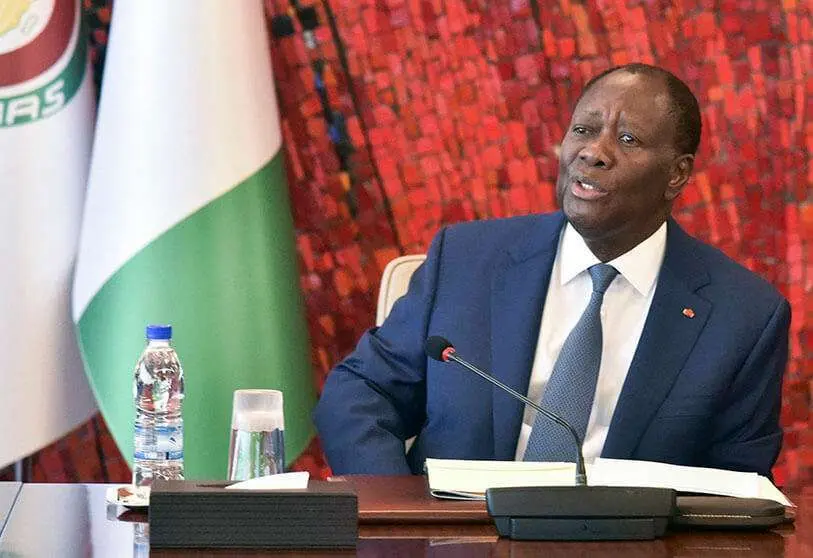Social tensions in Ivory Coast after Ouattara's announced re-election

Elections on October 31st in Ivory Coast are becoming a threat to regional stability and security. President Alassane Ouattara, aged 78, promised to leave politics for the next generation to take over, but the death of Amadou Gon Coulibaly, prime minister and presidential candidate in August, has changed his mind as, according to him, it is a "case of force majeure".
The opposition has denounced this decision, accusing the president of violating the constitutional limit of two terms. Ouattara, however, considers that the limit of two mandates is established by the new constitution of 2016 and is therefore not violating any law. The Constitutional Council of Cote d'Ivoire has agreed to allow him to stand for election. However, it has rejected 40 out of 44 candidates, including two Ivorian ex-politicians who have strong social support, such as former Prime Minister Guillaume Soro and former President Laurent Gbagbo (2000-2010). The argument used by the Constitutional Council is the ineligibility of both candidates after they were sentenced to 20 years in prison for embezzlement and attempted insurrection.
In September, the African Court on Human and Peoples’ Rights (AfCHPR) demanded that Côte d’Ivoire’s Constitutional Council allow Soro and Gbagbo to stand for election. In April the ACHPR requested a stay of execution of the arrest warrant for Soro. In response, Côte d'Ivoire withdrew the declaration of its competence, as, according to the Ivorian government, this institution is attempting to infringe on its sovereignty. The withdrawal of jurisdiction does not take place automatically, but until a year from now, that is until April 2021, Côte d'Ivoire remains subject to its jurisdiction. Therefore, the Court continues to have jurisdiction over Gbagbo's and Soro's requests for inclusion on the electoral lists. Regardless of how both processes end, the fact that Côte d'Ivoire has decided to withdraw the declaration of competence of the ACHPR weakens its international credibility.
Social tensions over these elections have only increased since Ouattara's candidacy was announced. The last time there was a political change in Côte d'Ivoire was during the 2010 presidential elections, when former president Gbagbo did not want to assume Ouattara's victory. The protests that followed were unprecedentedly violent, leaving 3,000 dead.
Last August, after the announcement of Ouattara's candidacy, protests were organised all over the country that left at least 100 injured and 15 dead, causing alarm in the international community. Following the August protests, the government has decided to suspend marches and other public demonstrations throughout the country until September 30. Several civil society activists have already been jailed for inciting the protests, including Pulcherie Gbalet and Justin Koua. The measure has been considered by the opposition, non-governmental organisations and the international community as a serious violation of human rights. If this measure is extended in October, social tensions and violent incidents will increase to the point where they could jeopardise the proper conduct of the elections.
On the other hand, the opposition calls for civil disobedience, accusing the Constitutional Court and the Independent Electoral Commission of not being impartial and serving the interests of the Ouattara government. This opposition is led by the candidate Henri Konan Bedié, former president of Côte d'Ivoire from 1993 to 1999, who is also running for election at the age of 86. The fact that the decisions of the Constitutional Court and the Electoral Commission are being questioned is a dangerous precedent for the outcome of the elections. It shows the lack of credibility of these institutions in the eyes of politicians and civil society. Regardless who wins the elections, there is a risk that candidates will contest the results and not take over the new presidency, as was the case in 2010. On the other hand, taking into account that the average age of the country is less than 20 years, the fact that the vast majority of the candidates are former presidents, with such an advanced age, shows the lack of generational replacement in politics.
With a growth rate of 8.5 percent of GDP before the crisis triggered by the coronavirus, Côte d'Ivoire has become the economic engine of West Africa. The proper conduct of elections in Côte d'Ivoire is therefore crucial to regional economic stability and development.









